Graham Reid | | 9 min read
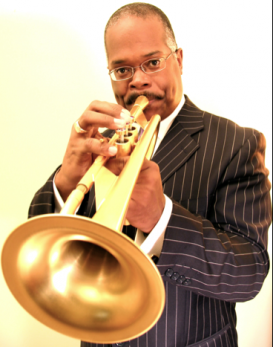
Although the great jazz composer and band leader Count Basie died in April 84, the band plays on.
The Count Basie Orchestra, an 18-piece recording and touring ensemble touring New Zealand this month (see dates here), is keeping Basie's sometimes boisterous, frequently moving and always swinging music alive and out there.
Although band members and leaders have changed down the decades, the orchestra uses Basie's original charts, is faithful to the legacy, still has players Basie hired, has picked up numerous accolades and this year celebrates the 80th anniversary of the first band William Basie formed in Kansas City.
The current leader is Grammy-winning trumpeter and educator Scotty Barnhart – who joined the band in 93 and was appointed musical director 18 months ago – and he's in no doubt he's helming a popular and important group.
“We still sell out halls, clubs and private engagement because jazz orchestra's just sound good. And this is the Count Basie Orchestra after all,” he laughs.
So Scotty, are you with the orchestra at the moment?
I am down in Florida teaching, I'm an associate professor here at Florida State University part time so I'm finishing my semester teaching and go back home to LA on Tuesday.
I lecture here too so do you have fit the orchestra around the margins of your teaching commitments?
Yeah. Being part time is good though, although a semester is 16 weeks I only have to do part of that so I can still travel. If I'm not on the road I'd just be at home in LA so I'd rather be here teaching because I really enjoy it.
You took over 18 months and you were an insider having been in the band for a very long time, what was the biggest challenge for you shifting into this new role?
I pretty much had my finger on the pulse but I had to assess where we were musically and the direction we had been heading. That needed to be altered a bit. I knew we had to get back to playing certain things that we hadn't been playing for a while in a certain way.
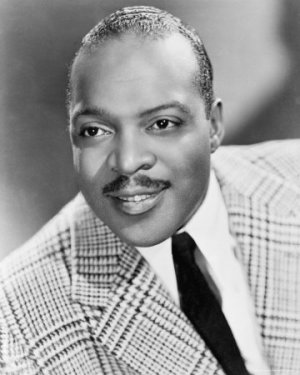 I've been studying the music of Count Basie intently
for 40 years now, every facet of this orchestra and every instrument.
That is what I would normally be doing anyway, so when I became the
leader I was able to really stand in front of the orchestra and
listen to what was happening. We just had to make a few small
adjustments and a couple of personnel changes, but they were all for
the best of the orchestra.
I've been studying the music of Count Basie intently
for 40 years now, every facet of this orchestra and every instrument.
That is what I would normally be doing anyway, so when I became the
leader I was able to really stand in front of the orchestra and
listen to what was happening. We just had to make a few small
adjustments and a couple of personnel changes, but they were all for
the best of the orchestra.
So there was nothing that shocked me about taking the role.
I knew even before I became leader what we needed to be doing.
When you were shoulder-tapped was there any trepidation about what you were getting in to?
Not at all, I kinda knew this was going to happen for the last 15 years and it was a matter of the timing being right. So we, myself and the management, had been preparing for it for a long time and it was dream come true.
It was one that I wanted and, not being arrogant, I knew I could be great at it because I have studied this music and I wanted to make sure the orchestra remained and sounded like the Count Basie Orchestra, and not some pick-up band or tribute band.
I wanted people to have one listen and say, 'Oh that's the Count Basie Orchestra, like it's always been.'
The line you have to walk is you need be respectful of the music and replicate it to a degree but you just can't duplicate it.
Not at all. We have the exact same charts but they approached freshly every single day. We play April in Paris every night for example, there are certain tunes we have to play every time, but every time it is new because the solos are all improvised. So that in itself elevates the arrangement every time we play it. Because now it is a new statement made by the people improvising on it.
The bass line is never the same, the bassist is improvising on the chord changes. He doesn't have notes written out for him to play. And the same thing with the drums. He has a guide but doesn't have an exact way he's supposed to play on the cymbals, for example.
So every night every song is fresh and new. That in itself is the challenge, and it's what keeps it exciting for us, making it fresh like that every time.
If we had the people playing the same solo eery night that would be a problem, that would make things stale real quick.
It wouldn't be jazz for a start.
Not at all. But also every hall is different and every audience is different and we feed off that. That becomes part of our energy and that too keeps it new and exciting.
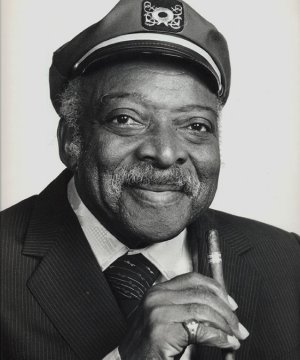 You said you wanted to bring certain
pieces back into the repertoire that hadn't been played for a while.
This is a huge catalogue of music available to you, so have you been
changing the repertoire regularly?
You said you wanted to bring certain
pieces back into the repertoire that hadn't been played for a while.
This is a huge catalogue of music available to you, so have you been
changing the repertoire regularly?
Yeah. There are certain things we have to play every night like our theme song, One O'Cock Jump, Lil' Darlin', April in Paris and My Shining Star for example. There are maybe 10 or 15 or so we rotate in and out that we have to get to often, but of course we have new things in all the time.
As matter of fact I'm waiting on Quincy Jones' manager to call me back to let me know if I can come pick up charts that Quincy wrote for the band back in the Sixties that I'd like to get back in. There are some Sam Nestico charts we haven't played since the Seventies too, we put those back in.
When we come to New Zealand we will have a huge library with us. Every set list I make up is different, so over a period of three or four nights we won't have to repeat anything other than those few we really have to, those the audience expects.
And there are people like myself and others in the orchestra who are arranging new pieces. I'm working on three arrangements right now to bring on the tour so we have new things we can play.
There are new vocal charts for our singer.
And who is that?
That is Carmen Bradford.
Still Carmen? She's been with the band for what, about 30 years?
Yeah, she's still with us and comes out as often as she can. She joined in 1983.
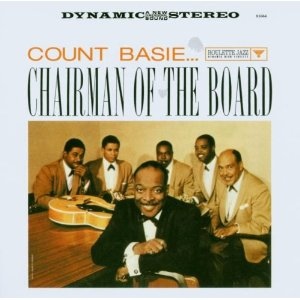 The Basie bands went through very
different periods and styles, was there a particular period when you
first started listing that you gravitated to because you liked it.
The Basie bands went through very
different periods and styles, was there a particular period when you
first started listing that you gravitated to because you liked it.
There were two which got me simultaneously. One was the Chairman of the Board album from the late Fifties.
And the record On the Road which was from '78-'79 when they were live in Switzerland.
Then I got hold of Kansas City Suite, the Bennie Carter music which was also from about '58-'59.
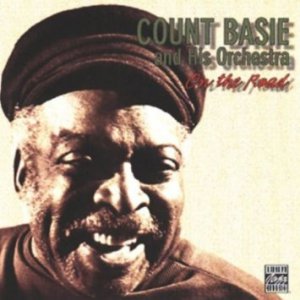 Those periods are what got me into the
band and from the late Seventies, the way the band was playing with
John Clayton on bass, they had a particular weight to the sound and
the way they would play certain things.
Those periods are what got me into the
band and from the late Seventies, the way the band was playing with
John Clayton on bass, they had a particular weight to the sound and
the way they would play certain things.
But I enjoy all periods of the band but initially it was those two periods which got my attention. It was unlike any other big band I'd ever heard, and I was listening to all of them, Ellington, all of them.
But there was something about the Basie orchestra which made you really feel good, made you want to grab your horn and get up and play with them.
Well, it was a band that could swing.
That's right, and we still are. You can trust me on that one.
I understand seeing Wynton Marsalis play was quite an epiphany for you. What was it that impressed you?
I was a senior in high school and I knew that music was my life's passion but I just didn't know what I was going to do, or how I was going to do something with it. I didn't know what, until I saw him on The Johnny Carson Show which was hosted by Bill Cosby that night.
I'd heard his name, a friend told me there was this young trumpeter player who was double-tonguing in his solos. Double-tonguing is really difficult to do let alone improvising while they were doing that. I heard that maybe four or five months before I actually saw him, and then I thought 'That's the guy I heard about' so I sat down and watched.
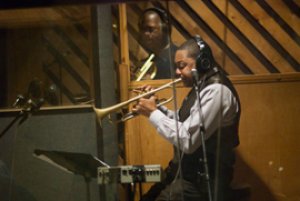 And I had never seen anyone in my life
play the trumpet that cleanly and with that much fire. As soon as I
saw that I just knew that was what I was supposed to be doing, there
was absolutely no question in my mind after that. Not at all.
And I had never seen anyone in my life
play the trumpet that cleanly and with that much fire. As soon as I
saw that I just knew that was what I was supposed to be doing, there
was absolutely no question in my mind after that. Not at all.
Luckily I met him in London just two months after I saw him on television and I sat right in front of him as he played two sets at Ronnie Scotts. I was five feet away from him and that cemented everything. We met and talked and became friends, and we are friends to this day. We've recorded together, toured together . . . We talk as often as we can.
So that I what happened. I saw somebody my age pretty much playing the trumpet that cleanly. First and foremost, I always wanted to be a great trumpeter. It could have been anybody who inspired me but it happened to be him, we connected right away and I knew he would be a very important part of my development.
As a trumpeter in the Count Basie Orchestra you are part of a great lineage: Buck Clayton, Harry Edison, Joe Newman, Thad Jones, Clark Terry . . . When you got the gig did you feel a lot of pressure on you because of the heritage you were entering?
Yeah. I knew about it. But there wasn't any pressure, only on the first night and the first solo. I had to stand in front of the Count Basie band and improvise a solo. I'm sure everybody that's ever been in band will tell you this, but when that band comes in behind you and they are supporting you, it's like they lift you off your feet.
It was unbelievable to me to hear that sound and feel it underneath you like that. After that I couldn't get enough of it, and I still can't.
I'm aware of people like Sweets Edison and Hot Lips Page and Sonny Cole, Pete Meager . . . great trumpeters. And we still have great trumpeters today playing.
You also run your own quartet and sextet.
Yes I do, I'm trying to do more but I am so busy teaching and the orchestra but I want to finally get it so I can play more with them regularly, because I love to play. I love all of it equally, and the teaching.
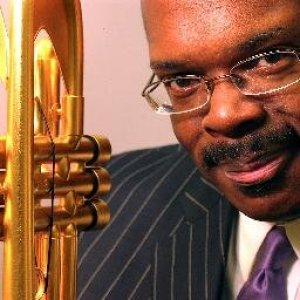 So life worked out Scotty?
So life worked out Scotty?
Yeah man, I'm lucky to have my passion be the focus of my life. I'm teaching jazz trumpet to jazz musicians and playing with the greatest jazz orchestra in the world in my opinion. I'm playing and swinging and keeping this music going. I could not be a more fortunate guy.
I used to think the days of big bands were over because of the sheer economics of trying to keep them going. But not true?
There is still a demand for it and we still sell out halls and clubs and private engagement where we play. Orchestras just sound good, and this is the Count Basie Orchestra.
It's like the New York Philharmonic, that's how I look at it. They started 150 something years ago but they continue to attract the best musicians, play the best music and have the best conductors. That's why they continue to this day.
They get the best of what they need, and that's what we do.
We try to get the best musicians we can, we play some of the best music ever and it's timeless and has been tested. But also I remind the guys we have to play for people to make the people happy, make them feel good and make them want to come back.
We can't just play for us, all the cerebral things we understand and get a kick out of playing. We have to play a simple beautiful ballad like Li'l Darlin' because maybe people remember it from when they got married, or we play Blue and Sentimental and remind people that blues comes from the church and we play things that show the virtuosity of the band.
We play the same things the band always did, and we have a balanced set list to cover certain soloists an eras of the orchestra.
So everybody leaves the concert satisfied. Audience and artists.

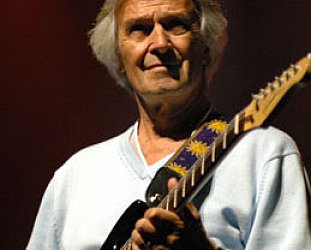
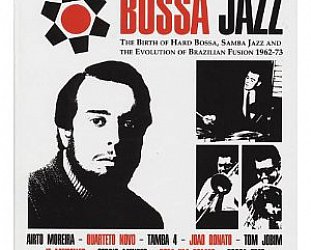
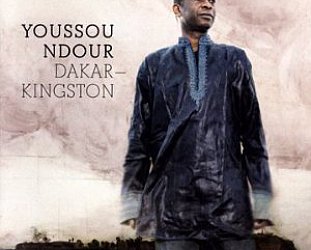
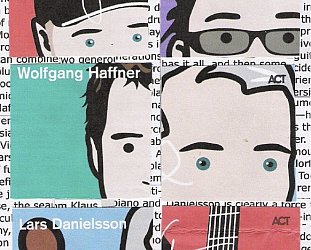
post a comment